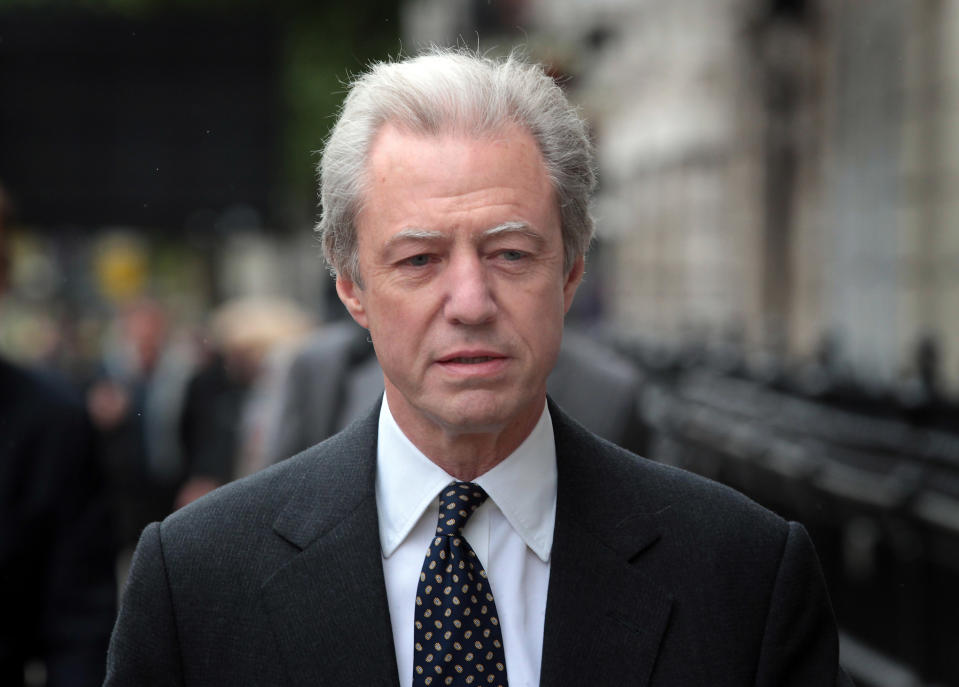Crisis-era Barclays chairman gives evidence in Qatar court case

The financial crisis-era chairman of Barclays (BARC.L) feared resignations from the board in 2008 as the crisis deepened, a court heard on Tuesday.
“Any one of them might have said, ‘This wasn’t what I signed up for, how do I get out of here?,’” Marcus Agius told the jury at Southwark Crown Court.
Agius, who was chairman of the bank from 2007 to 2012, made the statement while giving evidence in the trial of four former Barclays executives.
The bankers face criminal charges related to allegedly misleading investors about fees paid to Qatar as part of a crucial fundraising that helped Barclays avoid a state bailout as the credit crunch struck in 2008.
The defendants in the case are: John Varley, who was CEO of Barclays between 2004 and 2011; Roger Jenkins, who ran Barclays Capital’s investment management business in the Middle East and North Africa; Thomas Kalaris, the former CEO of Barclays’ Wealth Management; and Richard Boath, ex-head of European financial institutions group at Barclays Capital.
Varley and Jenkins each face two counts, while Kalaris and Boath each face one. All four defendants have pleaded not guilty. Qatar is not accused of any wrongdoing.
‘Fast moving and stressful’
Agius appeared in Court 2 on Tuesday as a witness for the Serious Fraud Office (SFO), which is prosecuting the case. He spent much of the first session of his evidence recalling the difficulties he faced while steering the bank through the financial crisis.
“I’m clear that in June 2008 we at Barclays did not anticipate how much worse things were going to get,” Agius told the jury. “I don’t think we thought it was going to go as badly as it ultimately did.”
He said he feared that non-executive directors could leave the board as the mounting financial crisis changed the nature of serving on the bank’s board, the court heard.
Prior to the financial crisis, sitting on the board of a large bank was a “prestige appointment” that would “reflect well on” appointees and “enhance their reputation in the wider world,” Agius said.
“As the financial crisis wore on” the role changed “almost beyond recognition,” he told the jury. The financial world became unstable and fears mounted that the industry could “fall over the edge.” It was a “very fast moving and stressful time,” Agius said.
There was therefore “a need for all members of the board to feel fully involved in what was going on,” Agius told the jury. The former chairman said he was concerned that if any members could claim to not be fully aware of the bank’s strategy they could use that as an excuse to resign.
“I wanted to make sure they had no chance to say ‘I wasn’t aware of that,’ so I adopted a strategy of over-communicating with the board rather than under-communicating,” he told the jury.
“Managing the board at that time was more full-time than it would normally have been in quieter times.”
‘Companies had already failed’

Barclays raised money from the Qataris in two separate transactions in 2008. Discussing the first deal, Agius told the jury that Barclays was motivated to raise money because “the world looked a more risky place” and a “view was forming and hardening that banks needed more capital.”
“The simple way to put it was increasing intensity,” Agius said. “The level of uncertainty generally in the market was intense. Companies had already failed. In this country, we all remember Northern Rock. In America, an investment bank called Bear Stearns had failed in the spring of 2008.”
“It was an extremely uncertain febrile period.”
Agius added that Barclays believed at the time that the fundraising would “help, reinforce, boost, underline our ambitions as a bank to do business around the world.” Investors, including Qatar, were chosen for strategic reasons, he said.
The SFO alleges that the four executives in the dock conspired to mislead investors by hiding the true amount of commission paid to Qatar in exchange for its investment. It alleges that advisory agreements struck at the same time as the investments were “smokescreens” to hide additional payments.
Agius said there was “widespread” knowledge that commissions and fees paid to all investors had to be equal and had to be disclosed within the investor prospectus.
He said former CEO John Valey had the “utmost integrity, high intelligence, formidable work-rate, someone who was committed to seeing the bank succeed.”
The case continues and is expected to last up to six months.
Read more on the trial of the Barclays four:
Former Barclays execs lied about payments to Qatar, court told
Senior Barclays banker raised concerns about ‘hidden commission’ in Qatar deal, court told
Barclays bankers worried about ‘dodgy’ payments to Qatari Prime Minister, court hears
Bankers feared pay cuts if state had nationalised Barclays in 2008, court hears
‘Big dog’ Barclays banker paid £25m bonus for 2008 funding deal at the heart of court case
Barclays lawyers signed off on ‘bungs’ and ‘corrupt payments’ to Qataris, court told
Judge tells jury not to ‘dwell on soundbites’ about ‘the food and the sex’ in Barclay trial

 Yahoo Finance
Yahoo Finance 